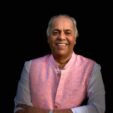WE PLAY CRICKET LIKE THAT ONLY

By: Yajurvindra Singh
Email: sunnybilkha@hotmail.com
Aug 26, 2022: The famous book titled “We are like that only” by Rama Bijapurkar regarding understanding the logic of consumers in India, is also relevant to the way cricket is being played presently.
“We play cricket like that only” seems to be the way world cricket is being played by teams in these modern times. Cricketers are being told to go and express themselves in the manner they feel comfortable without worrying about the consequences.
This may be a very bold and forceful way of approaching the game of cricket. However, at most times, it by-passes the basic understanding and simple logic of the situation one is in.
Test cricket was played naturally between teams to win. However, it also taught one to avoid a loss if the situation arose when one was not placed well. English cricket with the new ‘Bazball’ approach of aggression may have worked against New Zealand, but, it came a cropper against South Africa recently.
One was astonished to see the England captain, Ben Stokes, stepping out while facing his first delivery and fortunately for him he missed it altogether. England finally went on to lose the match and there seemed to be no remorse in them for the loss at all.
This is how they said they will play Test cricket, “live by the sword, die by the sword”. The interesting tale will be as to how they respond, when they lose consistently as luck may not always be with them.
Batters around the world seem to have a very aggressive approach presently in which success normally happens after every four innings.
India, is also heading towards this aggressive approach, and with the success of Rishabh Pant, one gets the feeling that others in Team India are also following suit.
Two of the core qualities that one needed to do well in when playing Test cricket was patience and concentration. The high averages of the legendry batters who have been successful in the past have had these two qualities in abundance. The modern way of life, wherein, one is showcasing oneself as a superstar has made the cricketer into a showman rather than a serious thinker.
The glamour quotient attached to make the cricketer a household star has transformed one into becoming an exhibitionist to the core.
The television and the digital world may have brought fame to a cricketer; however, it has also exposed them to emotional and mental health-related issues as well. The likes of Virat Kohli, Ben Stokes, Glenn Maxwell and many more from other sports, have been bold to relay the mental-health problems that they are going through. This may not have been as seriously looked at earlier but is a major concern today.
Virat Kohli, was always looked at as one who could zone himself out of a mental trauma. He showed this when he went on to play a vital knock in a Ranji Trophy match for Delhi after his father’s death that very morning. Having overcome such a dire situation, one is surprised as to the mental health issues he has mentioned that he has faced in recent times.
Virat Kohli, a hardcore successful cricketer, who has reached the highest level in his trade to succumb to a mental-health problem, makes one worry about so many others who do not have the wherewithal to speak about it. It is easy to advocate that cricketers should do so, but, for an upcoming or a non-established cricketer, ones’ career could be at stake.
It now seems inevitable that every international side should have a mental health coach accompanying them. This has become as essential as a batting, bowling and a fielding coach. To expect a cricket coach to do this function requires one who has trained in this profession.
Cricket and psychological or mental health problems are very different issues.
The present-day cricketer is playing nearly the whole year round. The travel and hotel stay can become a pain, especially, if one is away from ones near and dear ones for such a long time. Cricket boards have, at times, allowed spouses and children to join the player. However, this is a temporary solution and not one that can rejuvenate one.
The ICC and the boards of the cricket-playing nations need to address the mental health issues of cricketers very seriously. This is as much of a problem as what a cricketer faces in the other areas of the game. One has to look at it as an illness and the quicker one can get help and recover from it the better it would be for all concerned.
Cricket fans and followers’ eyes, very shortly, will be on the Asia Cup. Virat Kohli, with a month’s break to get over his mental fatigue, will be the centre figure of everyone’s concern. His success and demeanour will indicate whether he has recovered from his mental health issues. If so, one can see many other cricketers following his footsteps.
The organisers of the Asia Cup should be congratulated. They have ensured that India will play Pakistan at least twice and most likely for the third time as well in the final. The two top Asian sides have the minnows, Hong Kong, to play in the initial qualifier. The four that qualify from Group A and B will then play each other. The India versus Pakistan match on August 28, 2022 will just be a precursor for things to come. The loser can still qualify by beating Hong Kong.
Both Pakistan and India are without their main fast bowler due to injuries. Both look vulnerable in the pace bowling department. Batting will be the key driver. However, mental toughness will play a major part and one hopes that Virat Kohli has conquered the demons that have hounded him in the past.
All the best India!
(Yajurvindra Singh is a former Test cricketer. Views expressed are personal.)

